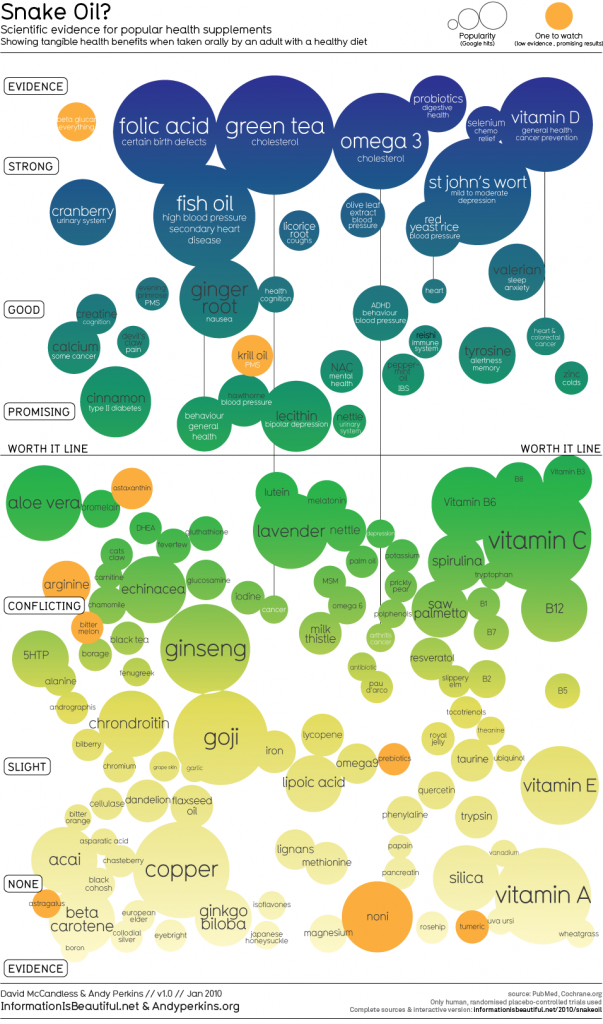To paraphrase: not much, and what there is is often conflicting.
So says a fantastic new infographic from my favourite data visualisation prOn website, Information Is Beautiful. Even better, the graphic is actually interactive, which means you can have a look at individual conditions, from sex to cancer and plenty in between, and split it down by type of supplement as well.
And, for those who’re interested, it would appear that there’s nothing you can take for sex, supplement-wise, whereas cancer has a mix of intriguing things that might actually work and those that won’t.
Have fun playing! I certainly have been…
In other hilarity, and for those who’d like a TGIF giggle, I have another gift. Having been chatting about failblogs last night, I woke up this morning to find a new one doing the rounds today: a science failblog!
HT: friend (and soon to be podcast co-host) Geoff Palmer, who blogs over at PCWorld.

Pingback: uberVU - social comments()
Pingback: Superoxygenation: how to prevent alcohol’s nasty side-effects | misc.ience()